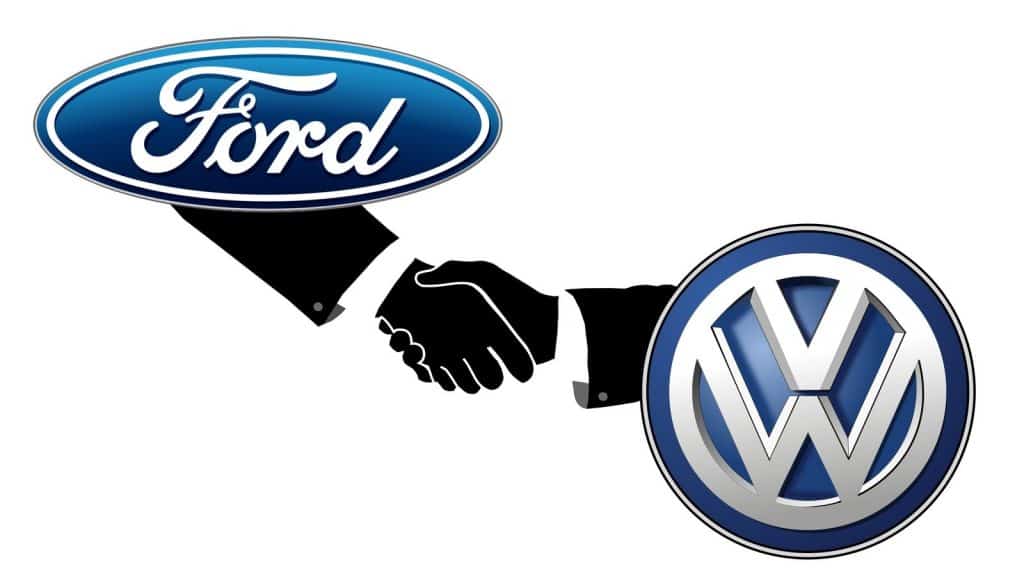 Volkswagen AG and Ford Motor Company announced an alliance .Volkswagen CEO Dr. Herbert Diess and Ford CEO Jim Hackett confirmed that the companies intend to develop commercial vans and medium-sized pickups for global markets beginning as early as 2022. The alliance will drive significant scale and efficiencies and enable both companies to share investments in vehicle architectures that deliver distinct capabilities and technologies.
Volkswagen AG and Ford Motor Company announced an alliance .Volkswagen CEO Dr. Herbert Diess and Ford CEO Jim Hackett confirmed that the companies intend to develop commercial vans and medium-sized pickups for global markets beginning as early as 2022. The alliance will drive significant scale and efficiencies and enable both companies to share investments in vehicle architectures that deliver distinct capabilities and technologies.
The companies estimate the commercial van and pickup cooperation will yield improved annual pre-tax operating results, starting in 2023.
In addition, Volkswagen and Ford have signed a memorandum of understanding to investigate collaboration on autonomous vehicles, mobility services and electric vehicles and have started to explore opportunities. Both companies also said they were open to considering additional vehicle programs in the future. The teams will continue working through details in the coming months.
“Over time, this alliance will help both companies create value and meet the needs of our customers and society,” Hackett said. “It will not only drive significant efficiencies and help both companies improve their fitness, but also gives us the opportunity to collaborate on shaping the next era of mobility.”
Diess added: “Volkswagen and Ford will harness our collective resources, innovation capabilities and complementary market positions to even better serve millions of customers around the world. At the same time, the alliance will be a cornerstone for our drive to improve competitiveness.”
The alliance, which does not entail cross-ownership between the two companies, will be governed by a joint committee. This committee will be led by Hackett and Diess and will include senior executives from both companies.
Commercial van and pickup collaboration
Ford and Volkswagen both have strong commercial van and pickup businesses around the globe, with popular nameplates such as the Ford Transit family and Ranger as well as the Volkswagen Transporter, Caddy and Amarok.
The companies’ collective light commercial vehicle volumes from 2018 totaled approximately 1.2 million units globally, which could represent the industry’s highest-volume collaboration as production scales.
Demand for both medium pickups and commercial vans is expected to grow globally in the next five years. The alliance will enable the companies to share development costs, leverage their respective manufacturing capacity, boost the capability and competitiveness of their vehicles and deliver cost efficiencies, while maintaining distinct brand characteristics.
Through the alliance, Ford will engineer and build medium-sized pickups for both companies which are expected to go to market as early as 2022. For both parties, Ford intends to engineer and build larger commercial vans for European customers, and Volkswagen intends to develop and build a city van.
According to analyst Kyle Peters, the partnership makes sense for a number of reasons. “First, Ford and Volkswagen can lean on each other to help market their vehicles in certain regions. VW could benefit from Ford’s knowledge of the US market and Ford can use VW to better position its European operations. Second, the two automakers can potentially share the cost of researching and developing the next generation of EVs and autonomous vehicles.”